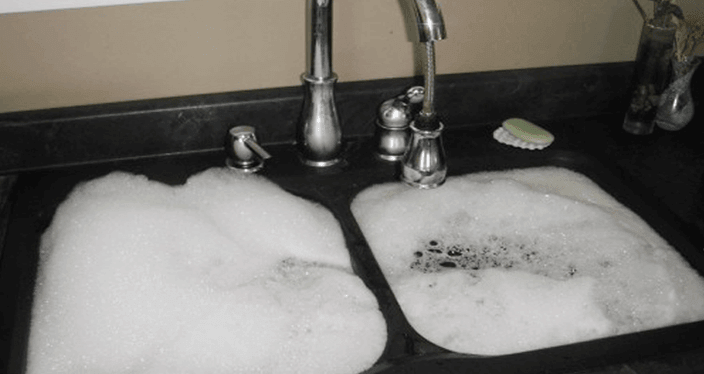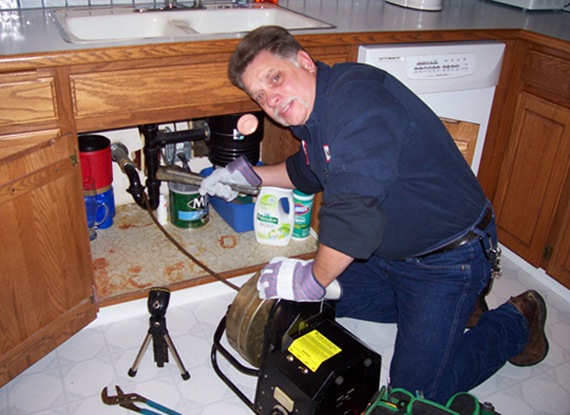You Can Unblock Your Kitchen Sink Without Harsh Chemicals
You Can Unblock Your Kitchen Sink Without Harsh Chemicals
Blog Article
This post following next about Some Ways You Can Prevent Kitchen Sink Clogs is seriously attention-grabbing. Don't miss it.

Someday recently my kitchen area sink obtained blocked, while frustrating I really did not assume it was going to be a big deal.
I simply got the Fluid Plumber I had purchased for just such an event, and then presto. Absolutely nothing.
So we avoid to Wal-Mart, my child in her jammies given that she was practically to head to bed. I found the Draino, my little girl suggested to obtain two simply in case and also after the Liquid Plumber had not worked I though perhaps I much better.
Tried it and it really did not work, so then I determined to let it truly have time to work over evening. Still in the early morning a clog.
So I call a plumber and also he had the blockage taken care of in no time, as well as he offered me a bit of guidance that I am mosting likely to be using now.
He informed me once a week to fill out both my sinks and then let the water out on both at the same time. He claimed the cyclonic action of the water would proceed all the way through my pipelines and also keep me from having a clog.
He stated as long as you do not put a lot of grease down your drainpipe you need to never have a blockage.
So I believed I would certainly share this tip with all of you. I figure it doesn't set you back anything and also takes less than 5 mins so why not.
Another suggestion another person had actually offered me that I neglected to ask the plumber around is to take a can of salt monthly as well as flush it down your bathroom. They informed me it would certainly maintain tree origins from expanding towards your pipes. So since I have trees in my backyard I salt the toilet once a month as well.
Why Your Kitchen Sink Keeps Clogging
If your kitchen sink seems to clog constantly even after you plunge or snake it, then there’s probably something in the pipes beneath it. Unfortunately, several of the materials homeowners flush down their kitchen drains can build up on pipe walls over time until they create stubborn, pervasive clogs.
Obviously, the first thing to do is stop making these clogs worse! To do that, you’ll have to figure out what you’re flushing and how to deal with it differently. Here are the four main reasons why your kitchen sink keeps clogging, and why they’re an issue in the first place:
F.O.G
Fats, Oils and Grease. These are the three most infamous kitchen sink cloggers out there. Unfortunately, they’re also the most common. The problem is, these substances are all perfectly suited to clogging drains. For one thing, they’re sticky. FOG rarely makes it all the way down your drain; instead, they tend to get stuck to the sides of your drains partway through. Worse, once they’re stuck to the sides of your pipes… they harden.
Coffee grounds
This is another bummer: coffee grounds are terrible for kitchen sinks. Even if you have a garbage disposal, you should neither dump grounds down your sink nor even allow them to drain accidentally. Once they’re in your pipes, coffee grounds can collect over time to make particularly stubborn and pervasive clogging problems–especially if they catch other particles on their way down. The problem with coffee grounds has to do with what happens when they get wet.
Think about what happens when you pour water over grounds when you make your coffee. They absorb water, clump up together, and get sticky. This is exactly what they do in your pipes, too. Like FOG, coffee grounds can get stuck to the sides of your pipes and congeal, forming the basis for future clogs. Even worse, they tend to catch other material that passes through your pipes, triggering sudden, annoying small clogs constantly.
Food remains (even if you have a garbage disposal)
A lot of homeowners assume that if you have a garbage disposal, throwing any food into it is fair game. We’re sympathetic, but unfortunately this just isn’t the case. Garbage disposals are for fruit and vegetable and vegetable scraps, small bones, ice, and cooked meat. There are a lot of foods that could create clogs even if you use a garbage disposal on them.
In particular, never throw potatoes, rice, or beans down your disposal. These foods swell up when exposed to water. After running through your disposal they become a kind of paste that can (you guessed it) stick to the sides of your pipe walls. Eggshells, large bones, raw meat, and shells are a no-go, too; not only can these cause clogs, but they damage your disposal on the way down.
P-trap problems
The p-trap is the curved pipe directly beneath your sink that connects the drain to the rest of your deposit pipes. It’s called a “p-trap” or sometimes an “s-pipe” because of its distinctive “p” or “s shaped” curve. The p-trap curves to hold a little water in order to block sewer gases from rising back up through your drain. Unfortunately, however, it occasionally becomes an obstacle certain objects just can’t pass.
If your kitchen sink keeps clogging or drains very slowly, there’s a chance something’s stuck in your p-trap. Put on some gloves, grab a bucket, and remove the p-trap carefully. Most p-traps have fasteners that can be twisted loose by hand, but you may need a wrench. Expect some dirty water to fall out when you turn it. Check the inside of the p-trap for either objects or buildup, and then clean it out thoroughly.
https://www.punctualplumberdallas.com/blog/why-kitchen-sink-keeps-clogging/

I ran across that blog posting on Why Your Kitchen Sink Keeps Clogging when doing a lookup on the search engines. If you enjoyed reading our blog posting if you please make sure you remember to share it. Thanks so much for your time invested reading it.
Contact Us Now Report this page